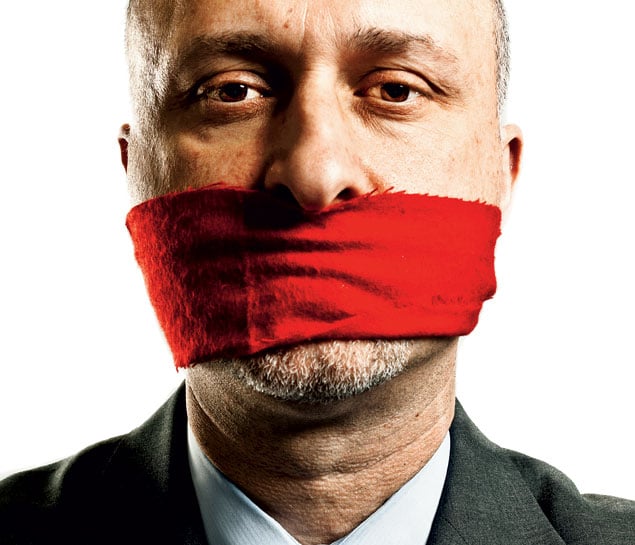If Eleanor Holmes Norton–DC’s nonvoting member of Congress–and a string of the city’s mayors have been the public face of the fight for greater self-rule in the District, Zherka is its chief strategist and organizer. He is in many ways the movement’s Zelig, a shape-shifter as comfortable testifying before Congress as he is leading chants through a bullhorn.
His own obscurity belies the influence of the nonpartisan advocacy group he turned from a once-flailing nonprofit into a many-tentacled powerhouse. Before its advent, Norton says, she often felt like “a talking head with no body, meaning a body of citizens to back her up.”
When he isn’t emceeing rallies, Zherka is either on the Hill or at DC Vote, in Dupont Circle, where he morphs into a methodical puzzle-solver. At their Monday meetings, his half dozen staffers turn in reports of their activities over the past week, with a breakdown of successes and failures. Zherka uses the reports as real-time intelligence–a “dashboard,” as one of his deputies puts it–to identify trends and new lines of attack.
In the halls of Congress, Zherka has a reputation for relentlessness. When a hard-fought 2007 voting-rights bill fell three votes short in the Senate, Zherka “was absolutely the first person who said, ‘We have to get back on the horse. We have to get moving again. What are we doing? Who are we targeting?’ ” says Deborah Parkinson, then a senior staffer on the Senate committee with District oversight. “Just when you’re tired and ready to take a break for 24 hours, he was right there saying, ‘What are we going to do to make sure we get three votes for next time?’ “
I accompanied Zherka one morning to a seminar he was leading for staffers from other nonprofits. The course was based on a how-to advocacy book Zherka is writing. Its chapter titles have the ring of both a battlefield manual and a self-help guide–Recruit the Right Champions; Communicate at All Times in All Directions; You Lose Until You Win.
The seminar was in a guesthouse at the villa-style DC home of Daniel Solomon, a philanthropist who helped found DC Vote. Zherka started with a lesson on issue-framing: why “marriage equality” is a better phrase than “gay marriage,” why “climate change” is more likely to get a politician’s ear than “global warming.”
He gave an example from his own movement: “When someone says ‘statehood,’ people will ask, ‘Well, where’s the building going to be? Who’s going to be the governor?’ When you frame it as ‘DC voting rights,’ which is essentially the same thing, people will say, ‘Oh, it’s what everyone else has.’ “
During a break, Zherka and I stepped onto the patio. “When I was in college,” he said, “I took one of those tests that’s supposed to tell you what career to go into.” It was some 150 questions but offered less clarity than he’d hoped. “I remember the results were actor, politician, professor, and military officer.”
When DC Vote hired Zherka as its executive director a decade ago, it needed–and got–all four.
• • •
A group of civic leaders and philanthropists established DC Vote in 1998 to rouse public support for the plaintiffs in Alexander v. Daley. The civil suit grew out of a legal theory that Jamin Raskin–a star professor at American University and now also a Maryland state senator–had laid out in a Harvard law journal. A group of 57 residents, joined by the DC government, argued that their lack of full congressional representation violated what Raskin said were equal-protection and due-process rights to “one person/one vote without regard to geographic residence.”
DC Vote’s founders saw in the suit new hope for a struggle winding back 200 years. The District was founded in 1790 on land ceded by Maryland and Virginia. A year after Congress moved to the new capital in 1800, lawmakers stripped residents of their ability to vote for Congress and President. When Philadelphia had been the capital, the Pennsylvania governor had refused to protect Congress from a mob of angry soldiers. Never again, Congress felt, should the seat of federal power be subject to the whims of local politicians.
Washingtonians raised an outcry. They paid federal taxes and fought wars but were denied the very democracy the United States had just fought Great Britain to win. Yet for the next 160 years, little changed.
Over the decades, resistance to self-rule took on more cynical dimensions. For many in Congress, DC was simply too liberal and too black. A history of local corruption didn’t help, though whether the District’s scandals were any worse than those in Congress or in the states remains a fair question.
It wasn’t until 1961, with the 23rd Amendment, that Washingtonians won the right to vote in presidential elections. In 1970, the District was granted a nonvoting delegate in the House. Three years later, Congress let DC residents elect a mayor and 13-member council. Though the so-called Home Rule Act was a giant leap, Congress retained the power to review the city’s budget and all acts of the council.
The momentum the District had drawn from the broader civil-rights movement in the 1960s and ’70s fizzled amid the violence and corruption of the 1980s and ’90s. After then-mayor Marion Barry’s arrest in a crack-cocaine sting, public animus toward the city crested. “The whole idea of making this little pissant city into a state is ludicrous, something like a fly landing on an elephant’s rump and contemplating rape,” the Philadelphia Inquirer’s David Boldt wrote in a 1993 editorial.
By October 2000, Anthony Williams–first as DC’s chief financial officer, then as mayor–had shored up the District’s finances and made friends in Congress. But the civil suit hit a wall. The Supreme Court upheld a lower-court ruling that under the Constitution only “the People of the several States” could choose members of Congress, and DC was not a state. The lower court had recognized the “inequity” but said only Congress could fix it.
By 2002, DC Vote was adrift and nearly bankrupt. Yet Daniel Solomon and another founder, Joe Sternlieb, came to see the legal defeat as an argument for the group’s revival. As they looked back at the history of the struggle, they noticed a lack of continuity. Leaders came and went; passions burned and cooled.
“There were these episodic moments of great interest but nothing continuing, nothing being built,” Solomon–whose grandfather cofounded the Giant Food supermarket chain–told me. “As a philanthropist, I saw–we all saw–the importance of building a structure that could keep pushing the issue forward, even and especially in the lean times.”
Board members recognized that DC Vote’s survival–and perhaps the movement’s–depended on its next choice of leader.


















